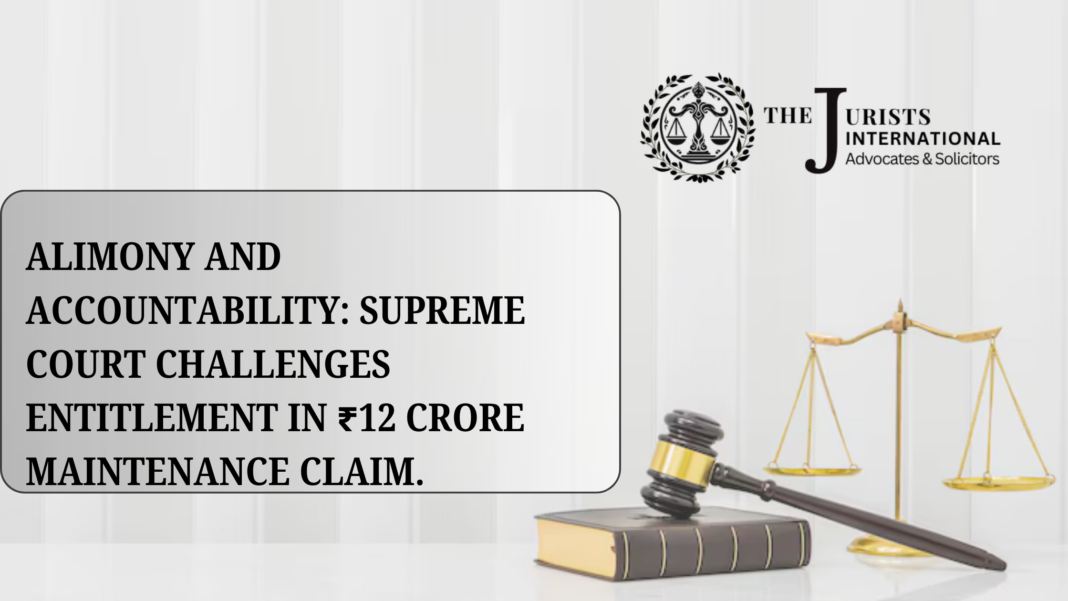In a thought-provoking development that combines equity with economic accountability, the Supreme Court of India recently made headlines by addressing the growing trend of exaggerated alimony demands from individuals who are voluntarily unemployed yet highly qualified.
The case involved a woman, an MBA graduate, who approached the Court seeking a staggering ₹12 crore in alimony and a residential flat from her ex-husband.
During the proceedings, the bench, led by Chief Justice Sanjiv Khanna and Justice Dipankar Datta, raised a fundamental query: Can an educated, employable individual voluntarily abstain from work and still expect substantial financial support from a former spouse? Justice B.R. Gavai, in particular, questioned the ethical and legal soundness of such demands, noting, “Those who are qualified and capable of earning should not opt for idleness and then claim disproportionately high maintenance.”
The Court’s approach signals a nuanced shift in how maintenance claims are evaluated, moving away from a blanket presumption of dependency toward a more contextual, capability-based assessment. While the right to maintenance remains protected under Section 125 of the CrPC and allied matrimonial statutes, the Court has drawn a clear boundary: financial entitlement must be rooted in genuine need, not convenience or entitlement divorced from personal agency.
By emphasising economic self-reliance where capacity exists, this ruling opens up a larger conversation about gender-neutral expectations of responsibility, post-divorce equity, and the role of personal agency in maintenance jurisprudence. It is a message not against support, but in favour of balanced justice—where maintenance is a cushion, not a windfall.
Alimony and Accountability: Supreme Court Challenges Entitlement in ₹12 Crore Maintenance Claim



